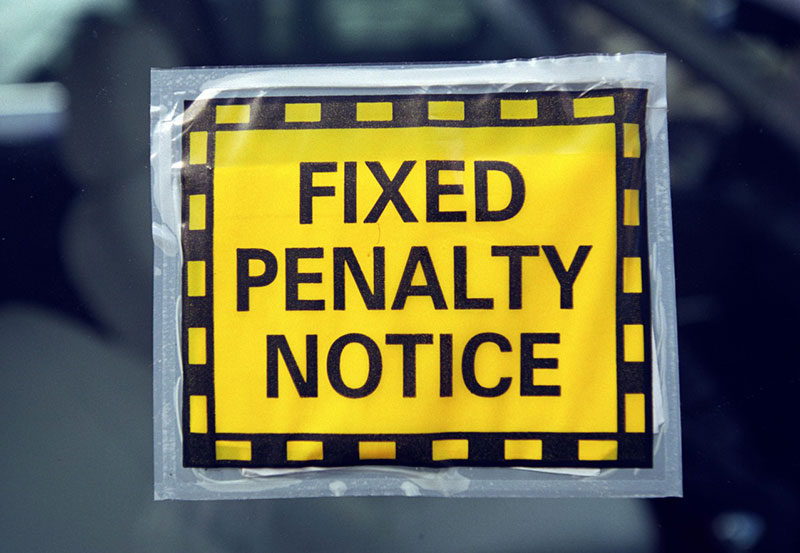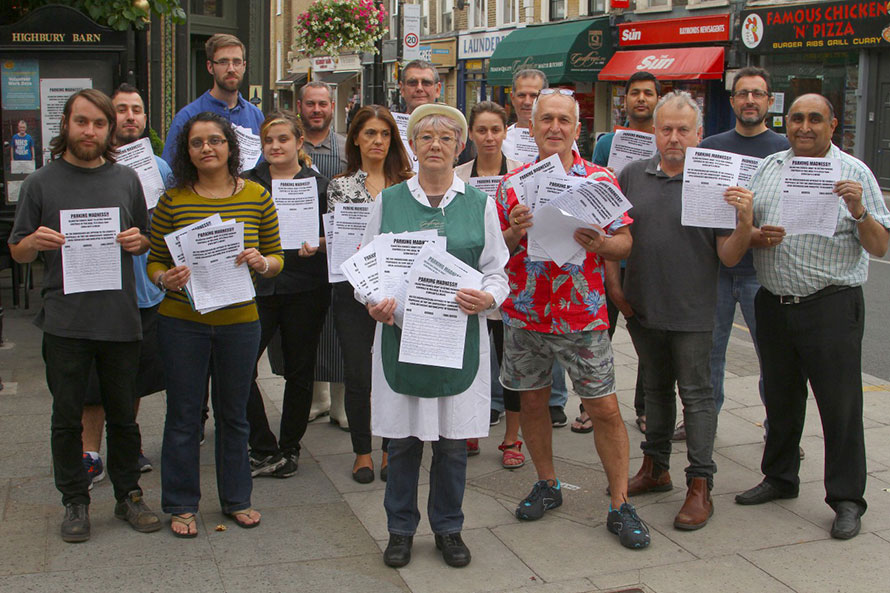The rise of 24-hour parking restrictions
I'm going to wait til the midnight hour — then ticket you

A NORTH London borough is to become the first in the country to enforce widespread parking restrictions on residential streets 24 hours a day. The move means that residents and visitors must display permits at all times, or risk being ticketed by wardens.
Click to read car REVIEWS or search NEW or USED cars for sale on driving.co.uk
Islington council says the move is aimed at simplifying parking rules, but critics claim it is intended to generate revenue. Motoring groups say the council is just one of many across the country using resident parking zones to raise money since the ban on CCTV cars earlier this year, which is expected to result in a reduction in parking fines being handed out.
Parking permits can cost more than £100 and are typically issued to residents on an annual basis, allowing them to park outside their home without fear of penalty if it is within a controlled parking zone (CPZ). Residents must usually buy parking vouchers to give to visiting family or friends who wish to park on their road.
In the past, CPZs have operated only at specific hours of the day — between 9am and 6pm, for example — to ensure that streets are not clogged up by non-residents. In many cases the hours of operation are even shorter, sometimes just two hours, outside of which anyone may park within the CPZ. Extending the zones’ hours of operation means wardens will be able to patrol for transgressors at any time of the day or night.
The rollout of 24-hour CPZs, which will initially apply only to certain areas of Islington, has sparked anger among residents, who have launched a “Stop the Parking Madness” campaign.
Councils have a captive audience. Having restrictions for 24 hours a day is excessive and anti-car
Many of the local shopkeepers claim businesses will suffer, since passing trade will now always have to pay to park and visit their shops. “It’s a revenue thing,” says Chris Godfrey, owner of Godfreys butcher’s, which has stood in the Highbury Barn area of Islington for more than 100 years. “People understand where they can park and that means the council is giving out fewer tickets. If they change the rules, people will get confused and [the council will] be able to issue more tickets.”
Islington’s most recent accounts show it raised £1m less in parking fines in the 2012-2013 financial year compared with the previous 12 months, while increased costs meant the profit it made from parking and traffic fines reduced from £9.2m to £6.7m.
Godfrey and other traders in the Highbury Barn area have organised a petition to oppose the proposal to extend residents’ parking hours; it has gathered more than 700 signatures so far.
“The plans make no sense,” says Hak Huseyin, chairman of Islington chamber of commerce. “It might increase revenue for the council but it could close down the shops, cafes and restaurants [that] rely on customers driving to them in the evenings and weekends.”

Across the country, parking permits are increasingly a flashpoint between authorities and car owners. This is partly because of their ballooning cost: in the past, buying a permit used to be the equivalent of paying a peppercorn rent — you paid a token amount to cover the cost of administering the parking zones. In recent years, however, that token has grown into a substantial sum, in many cases breaking through the £100 mark. And because the majority of residents don’t have access to off-street parking, they have no choice but to pay.
A survey published earlier this summer found that Birmingham and Manchester have the distinction of charging their residents most to park: permits in these cities can cost up to £750 a year. Next is Islington, which bases its fees on the CO2 emissions of each car. The most expensive permit costs £444 — plus an additional £96 for diesel owners. Hull, Durham, Ashford and Oxford have all raised rates over the past few months.
Residents of Morgan Street in Bristol used wheelie bins and metal barriers to block their road as part of a long-running protest against council plans to introduce controlled parking. In another area of the city, pay and display machines installed as part of a residents’ zone were quickly filled with expandable foam, prompting the council to point out they would cost thousands of pounds of taxpayers’ money to repair.
“Councils have a captive audience,” says Edmund King, president of the AA. “If you have a car then you have to pay. Having restrictions for 24 hours a day is excessive and anti-car. It used to be the case that after 6pm, and on most Sundays, drivers could be sure of getting free parking, but that is gradually getting clawed back by local authorities.
“Ultimately it will backfire. People visit shopping areas at the weekend because they know they can park there. If they can’t then the cafes, restaurants and theatres will lose out. Not everyone wants to — or can — use public transport.”

Islington council says it is not making changes to increase revenue. “In some places existing controls are not working,” says Claudia Webb, the councillor responsible for transport. “We want to ensure that those who most need to park, such as disabled and elderly drivers, are able to do so. Equally, we want to build a thriving local economy by supporting local businesses.”
Islington is also introducing free parking windows for visitors in the evening and all day on Sunday.
Residents are not convinced. Jan Tucker, 65, lives in an area of Archway, Islington, where residents-only parking restrictions currently apply between 10am and 2pm on weekdays. From next year the council wants them in place throughout weekdays and on Saturday mornings too.
“It’s ridiculous,” she says. “There aren’t any parking problems here. What will happen is that people will say that they can’t come and visit because there are parking restrictions in the road and they don’t want a ticket. The community will suffer.”
Parking sensors cleared for take-off to catch tardy holidaymakers
If information is power, then traffic wardens are getting the upper hand. Parking spaces are being fitted with wireless smart sensors that detect vehicles that have exceeded their time limit and alert attendants remotely.
The technology means wardens can more effectively target vehicles that have spent too long in a space, or even those that are just about to overstay, meaning there’s no chance of escape if you return to your car even a couple of minutes late.
Holidaymakers may spot the sensors in the tarmac this summer in the pick-up and drop-off area of Stansted airport, outside London. Drivers pay £2.50 to stop there for 10 minutes and £2.50 for every further minute.
Wardens can view the parking bays on a display that shows how long each one has been occupied. A warning triangle appears on any bay after about 10 minutes, allowing them to make a beeline for cars that are about to overstay.
Stansted insists the scheme will be used to help motorists. Rather than issue a ticket, it says, wardens will instead be able to approach cars and inform drivers that they are about to overstay their allotted time.
The technology is made by Clearview Traffic, an Oxfordshire-based company. Each sensor contains a magnetometer that detects large metal objects — such as cars. Some also have a back-up infrared detector. They cannot identify registration numbers, so parking tickets cannot be issued from the sensor data alone: wardens must still check the windscreen for a pay and display ticket, for example.
The devices have also been installed in a Buckinghamshire shopping centre and are being used in trials by two councils.
“Rather than having five traffic marshals regularly recording registration numbers and times, there could be fewer marshals because they are being more productive,” says Graham Muspratt, group product manager for Clearview Traffic. “You just direct them to a particular bay where a car is recorded as overstaying.”
There is a silver linking, though. With a phone app, drivers can use data from these sensors to find an available parking space. This is also the case in Westminster, where 3,000 sensors, made by a different company, have been installed in parking bays. The information is not yet being used in the London borough to send wardens to overstaying cars.
Click to read car REVIEWS or search NEW or USED cars for sale on driving.co.uk




